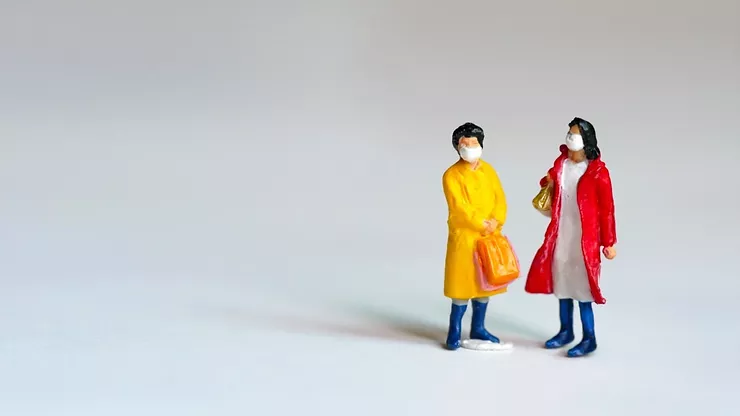
With a quarter of Scots having now received the coronavirus vaccination, without meaning to jinx it, it’s finally starting to feel like we are, at long last, nearing the light at the end of the tunnel. With each passing day I feel one step closer to being able to entertain myself in ways other than trying out a new supermarket and crying over old mask-less photos of a corona ignorant younger self. Throughout both lockdowns I have always tried to keep myself occupied in a variety of ways in order to stave off, or at least hide from, any existential crises. In particular, I tried to revitalise my daily routine and develop some positive habits. These included downloading an app that guaranteed that I’d be able to do the splits in 30 days (still can’t touch my toes) and promising myself to floss everyday (decided that I’m happy to eat soup for the rest of my life if I lose my teeth). Despite my good intentions, none of these habits stuck and in the end I always reverted back to my old sinful ways of greed, sloth and idly waiting for death. However, it did make me wonder if, unlike my failed habits, coronavirus would have any lasting consequences on society and following on from the previous article, the impact it has had on charities.
Charities play a crucial part in our society, supporting the most vulnerable across a variety of areas such as health, sports and education. According to the UK Civil Society Almanac, the charity sector employs over 900,000 people and has a combined income of more than £53 billion. The knock-on effects caused by Covid-19 on charities has been huge, not only with the closure of charities shops and the cancellation of fundraising events, but also with the significant increase in demand for their services during lockdown. A poll by the Small Charities Coalition found that 70% of its members had experienced a 70% drop in income as a result of the pandemic, while 68% had experienced an increase in service demand. The charities most affected by this rising demand and decreased income were those concerned with housing, social care, mental health and disadvantaged communities.
The Institute of Fundraising estimated that during 2020, the charitable sector experienced an income shortfall of £12.4 billion leading to one in ten of the estimated 170,000 UK charities facing bankruptcy. This is of a particular concern for smaller and more local charities who have been forced to make significant cuts to their services. However, even larger charities are not immune to this threat with Cancer Research losing approximately £120 million over lockdown, and National Trust estimating their losses at £200 million. Although the government has provided £750 million of funding, this is simply not enough to combat the issue.
“This is a dire situation, how can I possibly help!?” I hear you ask. Well, it’s a lot easier than you think; in fact, you don’t even need to be alive to do so. In 2019 people left more than £3 billion in their wills to good causes. This generosity is fundamental to helping charities deliver their vital services. To put this into perspective, gifts and wills fund one third of Cancer Research’s work, make up 50% of the British Heart Foundation’s voluntary income and pay for nearly 2 out of every 3 guide dogs. However, not only does leaving a charitable legacy benefit both the charity and society as a whole, but you also receive substantial tax benefits, cutting down on your own inheritance tax bill. If you leave at least 10% of your net estate to a charity, your inheritance tax goes down from 40% to 36%, allowing both the charity sector and those you choose as beneficiaries to benefit. Creating a charitable legacy has never been easier as most charities offer a free-will writing service, helped in particular by the National Free Wills Network. Not only is it free but thanks to coronavirus, will-writing can be done remotely via video link, so you don’t even need to get out of your dressing gown to change the world. It is entirely up to you what happens to your money, property and possessions after you die, so whether you want to donate to ‘Glasses for Visually Impaired Dogs’ or to my charity ‘Flossers for the Lazy’, just remember to get it done before it’s too late!
